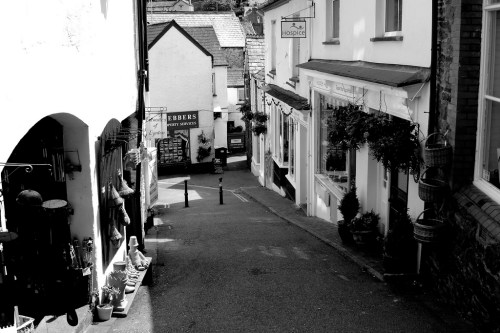In the last few weeks we have seen a fair few high street names go into administration, Jessops, Comet, Blockbuster and HMV to name but four. The high street as we know it is changing, across society (including social media) people have been expressing their sadness in regard to these changes.
These are a few thoughts, not necessarily coherent or logical, but just a few thoughts.
We (as a society) are responsible for these changes on the high street. If we make the choice to shop at Tesco or online at Amazon, we shouldn’t be surprised that the high street changes.
If we (as a society) only go to 99pLand, Poundstretcher, Wilkinsons and similar cheap shops can we be surprised when the up-market retailers (as well as the independents) go to the wall and close down.
We (as a society) can make things change if we want to, look at places like Totnes where local stores thrive and chains are virtually non-existent. If you want your local stores to survive then shop there, actions speak louder than words. However as has been pointed out to me, local and independent usually means more expensive. This is fine if you earn enough to make that financial choice, alas much of society has become accustomed to low prices and as a result find it difficult and challenging to adjust to higher prices. There are also a fair few elements of society who are unable to pay the higher prices too.
We seem to now have a society where we are more concerned about prices and ignore the value of good service, local provision and the quality of what we are actually buying.
I am just as guilty as everyone else.
Then again, all this change may be normal.
Where are all the blacksmiths?
Why do we not worry about the lack of haberdasheries?
Who cares about the coal merchants?
Maybe we’ve forgotten in recent years that big chains are a recent phenomena. We use to be surrounded by independent retailers, but they were driven from the high street by the big chains. Big chains don’t always have the flexibility and dynamism that small places can have.
Or was it something else?
HMV, Jessops, Woolworths all failed to respond to changes in society, they failed to see the impact that the internet would have on our buying habits? Or did they realise that even if they wanted to respond, they couldn’t because of the high costs of leases on the high street. Locked into paying for leases that meant margins needed to be high. They had no choice, they couldn’t compete on price, we didn’t care about service, they were doomed to fail. Over recent years they managed to survive, but finally they couldn’t get the credit they needed, they had to close. I wonder if the landlords were only thinking about short term gains, as empty shops pay no rent over the long term.
Of course we mustn’t just blame the internet, the other big change in our society is the supermarket, no longer a place to buy groceries, it sells clothes, DVDs, CDs, phones, furniture and electrical goods. Why go anywhere else when we can just visit our local supermarket. They also seem to be getting more and more local too. No, I am not talking about the metro, the local and express variants, but the sheer number of supermarkets everywhere. New ones are been built all the time, and local objections seem to be ignored, once open they become very popular.
Nor are the supermarkets and the internet the only cause here, the big out of town shopping malls have their part to play too.
Our high streets are changing, expensive coffee shops, charity shops, pound shops, pawn brokers, bookies, pasty shops. This is our high street, the one we made, the one we got when we decided that the mall, the supermarket and the internet was the place to shop.
So do we care? Should we care?


Interesting article from BBC News on the growth of supermarkets.
Hopefully the demise of some of the chains and empty shops in the High Street will make way for cheaper rents and enable small independent shops to make a come back. And if it does, there will be a return to diversity in the High Streets and a more local identity!
As someone who has spent a sizeable chunk of my working life in retail, the news of these closures always makes me a little sad. I have great empathy and sympathy for all of the staff who are effected by this – I have many friends in the retail world (not to mention my wife was recently made redundant from a head office role at a retailer).
However, that doesn’t mean I’m surprised or that my sympathy for the employees extends to sympathy for the companies or sentimentality about the way the high street used to be.
I don’t recall ever shopping in Woolworth in my adult life, they sold little bits of everything in a world where supermarkets could offer bigger ranges and lower prices. Our local store was replaced by Poundland, which seems to have the same range but this time at the right price.
HMV’s situation is nothing to do with the downturn and everything to do with poor management. In the year that iTunes took off the management of HMV were celebrating the fact that they didn’t get involved in digital music!
Comet plodded on with a stale business model, while Dixons had the good sense to ditch their small stores, consolidate their electrical and PC businesses and embrace online sales too.
I’m amazed that Blockbuster lasted this long in the face of satellite, cable, downloads (and piracy too I guess).
Instead of getting nostalgic, we should consider two things:
1. You’re right, we have the high street we chose. If we want the prices and convenience that online shopping and big box retailers give us, the price is the local shop.
2. Does it really matter anyway? The high street is always changing and in a few years we’ll have forgotten that there ever was a Jessops, HMV or Blockbuster (remember Bejam, Victor Value or Liptons?)